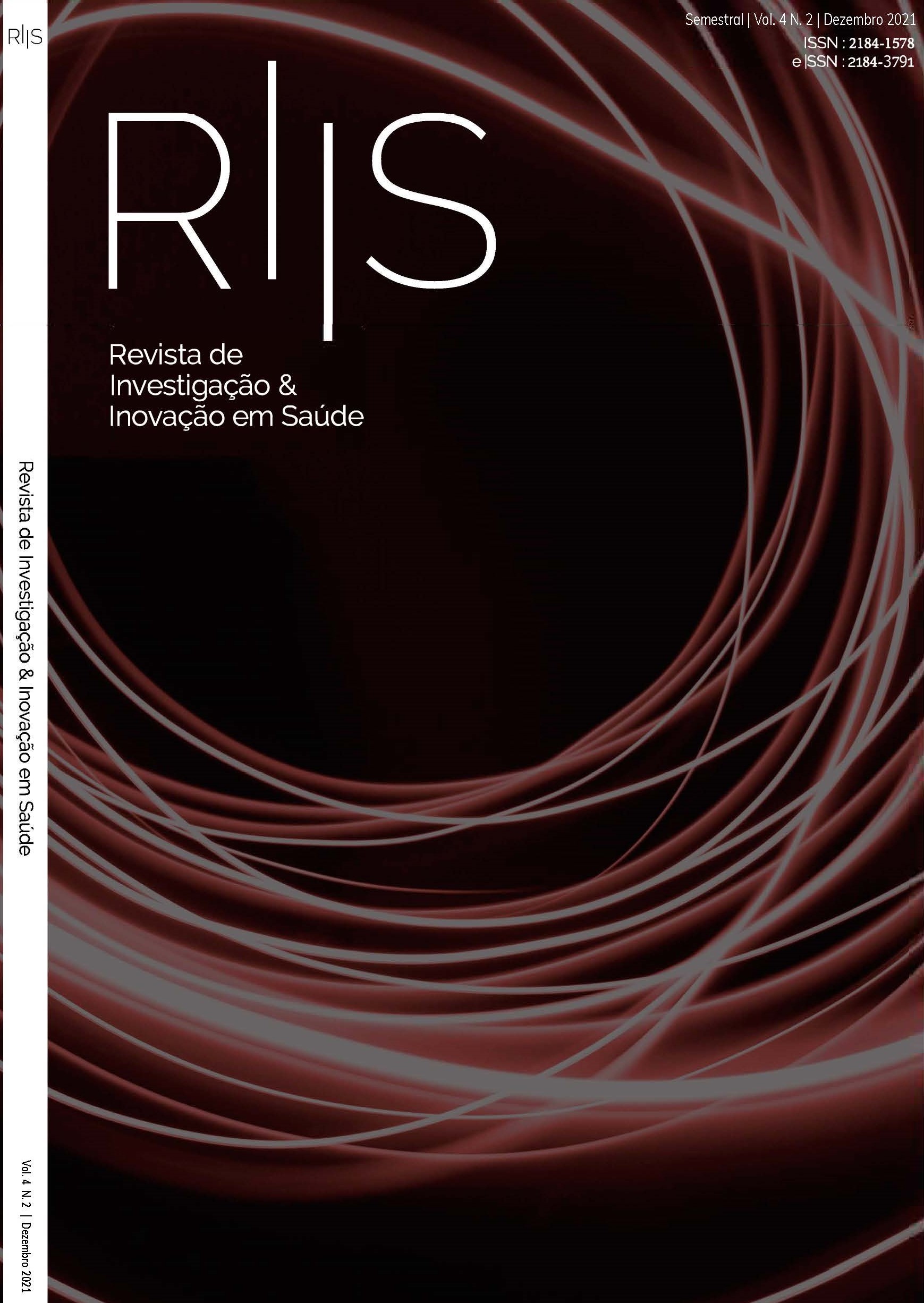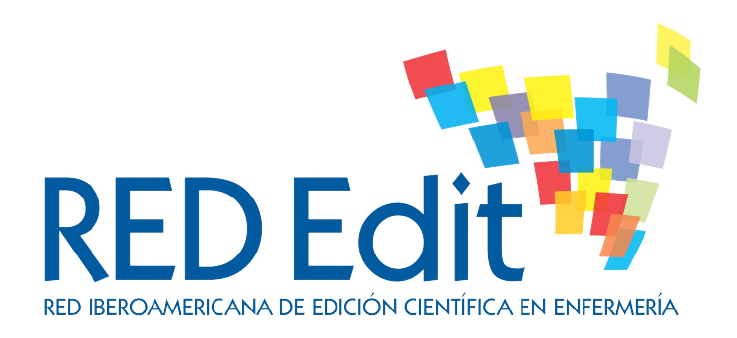Peer tutoring in nursing education: the voice of tutors
DOI:
https://doi.org/10.37914/riis.v4i2.166Abstract
Background: pedagogical experiences involving peer tutoring have been increasingly diversified. In the case of nursing education, tutoring has registered a significant increase This study is integrated in Project for Innovation and Development of Teaching and Learning - Peer tutoring in the academic context of nursing (TutorParE). It aims to promote innovative pedagogical strategies in order to facilitate both the development of academic and transversal skills in nursing students. Objectives: analyze the experience of tutors on academic tutoring in nursing education. Methodology: this study, qualitative, exploratory and descriptive design enrolled eleven students from the 4th year of the nursing degree in one discipline of the 1st year. Results: two categories emerged from the Results: (1) personal development and; (2) collaborative learning. The strategy adopted in peer tutoring in nursing education was considered useful to enhance the acquisition of students' knowledge and skills, allowing personal development and collaborative learning. Conclusion: the findings achieved reinforce the importance of adopting active and innovative pedagogical practices, based on peer tutoring.
References
Aponte, J., Figueroa, B. N., Madera, M., Campos-Dominguez, G., Panora, E., & Jaramillo, D. (2015). Mentoring Hispanic Undergraduate and Graduate Research Assistants: Building Research Capacity in Nursing. Journal of Nursing Education, 54(6), 328-334. doi:10.3928/01484834-20150515-03 DOI: https://doi.org/10.3928/01484834-20150515-03
Bardin, L. (2018). Análise de Conteúdo. Edições 70.
Brody, A. A., Edelman, L., Siegel, E. O., Foster, V., Bailey, D. E., Jr., Bryant, A. L., & Bond, S. M. (2016). Evaluation of a peer mentoring program for early career gerontological nursing faculty and its potential for application to other fields in nursing and health sciences. Nursing Outlook, 64(4), 332-338. doi:10.1016/j.outlook.2016.03.004 DOI: https://doi.org/10.1016/j.outlook.2016.03.004
Bulut, H., Hisar, F., & Demir, S. G. (2010). Evaluation of mentorship programme in nursing education: A pilot study in Turkey. Nurse Education Today, 30(8), 756-762. doi:10.1016/j.nedt.2010.01.019 DOI: https://doi.org/10.1016/j.nedt.2010.01.019
De Backer, L., Van Keer, H., & Valcke, M. (2012). Exploring the potential impact of reciprocal peer tutoring on higher education students' metacognitive knowledge and regulation. Instructional Science, 40(3), 559-588. doi:10.1007/s11251-011-9190-5 DOI: https://doi.org/10.1007/s11251-011-9190-5
Dennison, S. (2010). Peer Mentoring: Untapped Potential. Journal of Nursing Education, 49(6), 340-342. doi:10.3928/01484834-20100217-04 DOI: https://doi.org/10.3928/01484834-20100217-04
Ford, Y. (2015). Development of Nurse Self-Concept in Nursing Students: The Effects of a Peer-Mentoring Experience. Journal of Nursing Education, 54(9), S107-S111. doi:10.3928/01484834-20150814-20 DOI: https://doi.org/10.3928/01484834-20150814-20
Freire, T., & Beiramar, A. (2017). Tutorias por pares: acolher, promover e potenciar os estudantes do ensino superior. In L. S. Almeida & R. V. Castro (Eds.), Ser estudante do ensino superior: as respostas institucionais à diversidade de públicos. Braga: Centro de Investigação em Educação.
Hall, R., & Jaugietis, Z. (2011). Developing Peer Mentoring through Evaluation. Innovative Higher Education, 36(1), 41-52. doi:10.1007/s10755-010-9156-6 DOI: https://doi.org/10.1007/s10755-010-9156-6
Hawkins, J. W., & Fontenot, H. B. (2010). Mentorship: the heart and soul of health care leadership. Journal of Healthcare Leadership, 2, 31-34. DOI: https://doi.org/10.2147/JHL.S7863
James, A., Smith, P., & Radford, L. (2014). Becoming grown-ups: a qualitative study of the experiences of peer mentors. Pastoral Care in Education, 32(2), 104-115. doi:10.1080/02643944.2014.893008 DOI: https://doi.org/10.1080/02643944.2014.893008
Kim, S., Jillapali, R. & Boyd, S. (2021). Impacts of peer tutoring on academic performance of first-year baccalaureate nursing students: A quasi-experimental study. Nursing Education Today, 96, 1046-58. DOI: https://doi.org/10.1016/j.nedt.2020.104658
Klein, E., & Vosgerau, D. (2018). Possibilidades e desafios da prática de aprendizagem colaborativa no ensino superior. Educação (UFSM), 4(43), 667-698. DOI: https://doi.org/10.5902/1984644429300
Ordem dos Enfermeiros (2011). Regulamento do Perfil de Competências do Enfermeiro de Cuidados Gerais. Ordem dos Enfermeiros.
Pereira, F. (2017). Aprendizagem por pares e os desafios da educação para o senso crítico. Int. J. Activ. Learn., 2(1), 6-12. DOI: https://doi.org/10.15202/25262254.2017v2n1p6
Rosenau, P. A., Lisella, R. F., Clancy, T. L., & Nowell, L. S. (2015). Developing future nurse educators through peer mentoring. Nursing-Research and Reviews, 5, 13-21. doi:10.2147/nrr.s73432 DOI: https://doi.org/10.2147/NRR.S73432
Sim-Sim, M.-M., Marques, M.-d.-C., Frade, M.-d.-A., & Chora, M.-A. (2013). Tutoria: perspetiva de estudantes e professores de enfermagem. Revista Iberoamericana de Educación Superior, 4(11), 45-59. doi:https://doi.org/10.1016/S2007-2872(13)71932-2 DOI: https://doi.org/10.22201/iisue.20072872e.2013.11.99
Svellingen, A., Røssland, A. & Røykenes, K. (2021). Students as Facilitators: Experiences of Reciprocal Peer Tutoring in Simulation-Based Learning. Clinical Simulation in Nursing, 54, 10-16. https://doi.org/10.1016/j.ecns.2021.01.008. DOI: https://doi.org/10.1016/j.ecns.2021.01.008
Tabloski, P. A. (2016). Setting the stage for success: mentoring and leadership development. Journal of Professional Nursing, 32(5), S54-S58. doi:10.1016/j.profnurs.2016.03.003 DOI: https://doi.org/10.1016/j.profnurs.2016.03.003
Torres, P., & Irala, E. (2014). Aprendizagem colaborativa: teoria e prática. In P. Torres (Ed.), Complexidade: Redes e Conexões na Produção do Conhecimento (pp. 61-93). Curitiba: SENARP
Downloads
Published
How to Cite
Issue
Section
License
Copyright (c) 2021 Cláudia Augusto, Goreti Mendes, Ermelinda Macedo, Manuela Machado, Analisa Candeias, Paula Encarnação, Teresa Freire, Odete Araújo

This work is licensed under a Creative Commons Attribution 4.0 International License.















